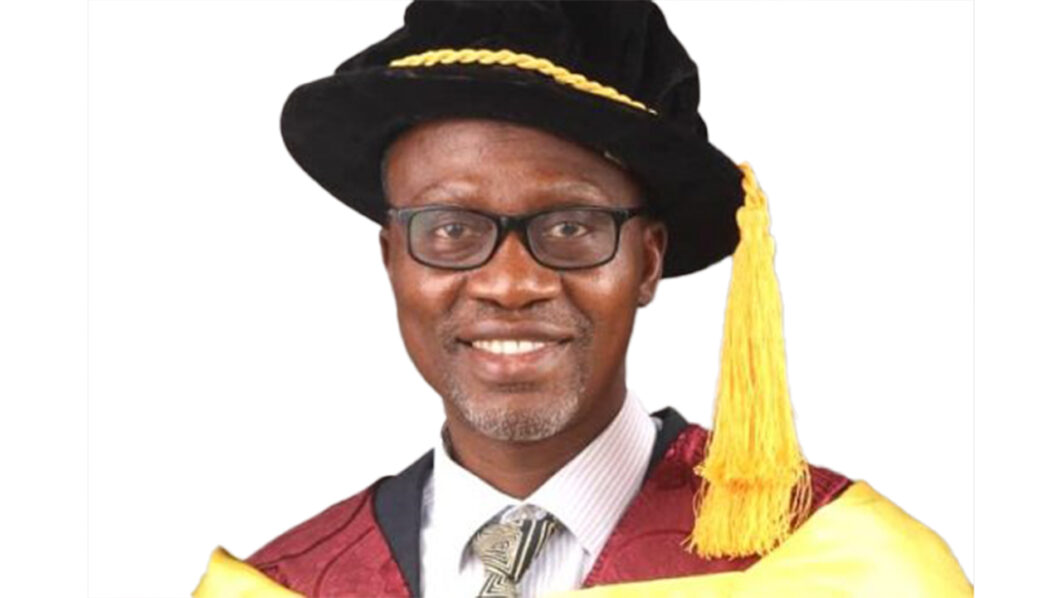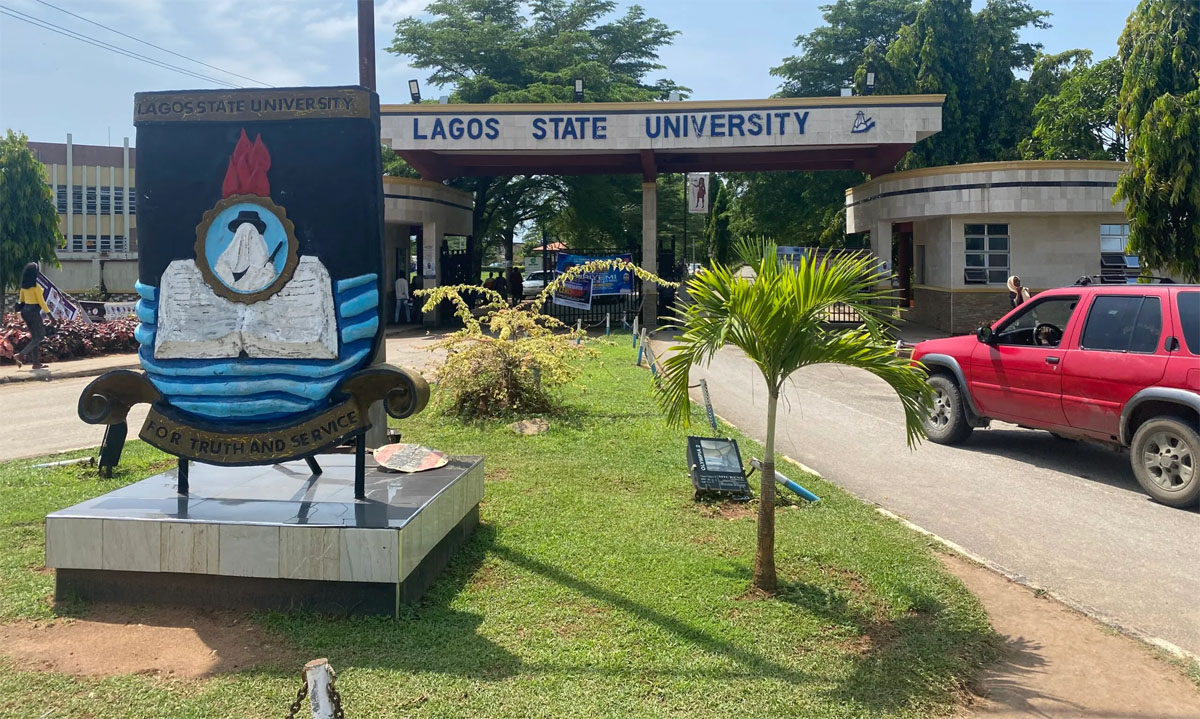Education
Agreement reached with ASUU, others, strike ends soon –FG

The Federal Government has expressed optimism that the decisions reached in its three-part meeting with university-based unions would yield fruits next week.
The Head, Press and Public Relations in the Ministry of Labour and Employment, Mr Olajide Oshundun, in a statement on Friday, said some agreements had been reached between the government and the unions.
The Academic Staff Union of Universities, the Senior Staff Association of Nigerian Universities, the Non-Academic Staff Union, and the Association of Academic Technologists are currently on strike.
The unions embarked on strike actions while demanding improved welfare packages, better working conditions and implementation of various labour agreements signed with the Federal Government between 2009 and 2015.
The Minister of Labour and Employment, Senator Chris Ngige said, “We had a cordial and fruitful discussion; we looked at the issues dispassionately and reached some agreements, to the satisfaction of everybody in attendance.”
Ngige said the meeting was moved out of the labour ministry because government involved some interested parties in a bid to resolve the dispute with the unions.
READ ALSO:
- Blasphemy: Buhari, CAN, NASFAT Condemn Killing Of Student
- As Ngige, Malami withdraw resignation letters, Falana warns cabinet return not automatic
- Elon Musk puts $44bn Twitter takeover deal on hold
The parties were the Chief of Staff to the President and Chairman of the three-part meeting, Prof. Ibrahim Gambari, the Chairman of the Nigeria Inter-Religious Council, the Sultan of Sokoto, Alhaji Sa’ad Abubakar III, and the President of the Christian Association of Nigeria and co-chair of NIREC, Rev. Sampson Ayokunle.
The negotiation team also had the Ministers of Labour, Finance, Education, ASUU leaders, and other stakeholders.
The Minister of Labour said, “We discussed. Everybody was happy. We reached some agreements, and we hope that by next week those agreements will start maturing.
“The four unions will also go and brief their members so that they can call off the strike.”
The minister said the issues in the 2009 agreement, such as the renegotiation of the condition of service and the wage review could be concluded next week.
In his remarks, Gambari lamented that the perennial problems in the universities had culminated in the mutilation of the nation’s educational calendar.
He urged ASUU to return to the classrooms while negotiations were ongoing, to avoid violence by students who had begun blocking roads and airports in protest of the prolonged strike.
He gave the assurance that the President, Major General Muhammadu Buhari (retd.), was determined to put an end to the negative developments in the nation’s tertiary institutions.
“We need predictable and quality education so that the human capital required to move our country forward will be developed consistently,” Gambari said.
Ayokunle, on his part, also appealed to the unions to return to work in the interest of the children and the nation.
The ASUU President, Prof. Emmanuel Osodeke, urged the government to give quality attention to education, saying all the problems in the sector could be amicably resolved if the government does the needful soon.
Meanwhile, students of the Obafemi Awolowo University, Ile-Ife, under the aegis of the Great Ife Concerned Students in collaboration with the Fund Education Coalition protested against the protracted ASUU strike. They blocked major roads in Osun State, leading to gridlock.
The leader of protesters, Omowumi Abraham, said, “With our education, we are becoming a threat to those in government. They should fund education. In 2020, we were at home because of ASUU strike and coronavirus. There was a surge in the crime rate. They should not toy with our future. They should immediately reopen schools.”
READ ALSO:
- Elon Musk puts $44bn Twitter takeover deal on hold
- Buhari Bids Farewell To 10 Ministers, Promises To Replace Them Soon
- Ex-lover: Nobody said anything when Nkechi Blessing called me a 2-minute man
In a similar vein, students of Adekunle Ajasin University Akungba-Akoko, on Friday, also took to the streets protesting against the strike.
Speaking during the protest, President of the Students’ Union Government, Kolade Ogunsanmi, said “We, Nigerian students, Adekunle Ajasin University students, are on the street of Akungba to express our displeasure to the Federal Government and in no distant time, the government should answer ASUU so that our universities can reopen.”
The Vice President of the Students’ Union, Kemisola Salami said, “Our education is being truncated; we are tired of sitting at home with no job; we are using this medium to plead with Federal Government to meet with ASUU and end the strike.”
In Imo State, university undergraduates also staged a protest on Friday against the lingering ASUU strike.
The Senate President of the National Association of Imo State Students, Alfred Jacinta, said, “We are giving them seven days to resolve their issues, else we will block all the major roads until our demands are met.
“We are not asking for too much. We are only asking that we should be allowed to complete our academic programmes. It is a time for us to say enough is enough and take our destinies in our hands.”
Meanwhile, the Oluwo of Iwo, Oba Abdulrosheed Akanbi, has appealed to the Federal Government and the striking ASUU members to resolve their differences to protect the future of Nigerian students.
Oba Akanbi made the call in a statement by his Press Secretary, Alli Ibraheem, on Friday.
The monarch said, “The security fragility of the nation calls for rigid handling of the educational sector. Failure to do so will unavoidably magnify the tense security challenge in the nation. I extend my appeal to the ASUU to prioritise students’ interest and be soft in their demand from the Federal Government.”
PUNCH
Education
Two ex-VCs, JAMB registrar to attend Prof. Ibraheem UNILAG inaugural lecture Wed

Two ex-VCs, JAMB registrar to attend Prof. Ibraheem UNILAG historic inaugural lecture Wed
- History beckons as Mass Comm alumnus delivers inaugural lecture Wed
History will be made this week Wednesday December 18, 2024 at University of Lagos when an alumnus of the university’s Mass Communication Department, Ismail Adegboyega Ibrahim, professor of journalism and communication studies, will deliver inaugural lecture as a lecturer of the department.
Ibraheem, a 1990 graduate of the university, returned to the institution in 2011 as a lecturer.
It is the first time a former student of the department will be delivering an inaugural lecture 58 years after its establishment.
Ibraheem, director of International Relations, Partnerships and Prospects at the UNILAG, will speak on “Casino Journalism and the End of History.”
The university’s Vice-Chancellor, Professor Folasade Ogunsola, will chair the event, according to a statement from the institution.
Two former vice-chancellors of the university, Professor Rahamon Bello and Professor Oluwatoyin Ogundipe, are expected to grace the lecture along with the Registrar of the Joint Admissions and Matriculation Board (JAMB), Professor Is-haq Oloyede, among others.
The lecture is scheduled for 4pm at the J.F. Ade. Ajayi Auditorium, UNILAG, Akoka.
Members of the University Community and general public are invited to join the lecture physically or virtually via Zoom Meeting ID:862 1255 2361.
Education
Austria offers scholarship grant for int’l postgraduate, research students

Austria offers scholarship grant for int’l postgraduate, research students
The Republic of Austria is offering an opportunity for international postgraduate students, PhD candidates, and postdoctoral researchers through the Ernst Mach Scholarship 2025.
Managed by OeAD-GmbH, Austria’s agency for education, this scholarship aims to support talented individuals in advancing their academic and research careers in Austria.
Details of the scholarship program
According to OeAD, the Ernst Mach Scholarship is open to students and researchers from various academic disciplines. This includes areas such as;
- Natural sciences
- Technical sciences
- Human medicine
- Health Sciences
- Agricultural sciences
- Social sciences
- Humanities, and arts.
The scholarship provides funding for semester or one-year grants, with research grants lasting from one to nine months, making it accessible to a broad range of applicants.
Benefits of the Ernst Mach scholarship
The scholarship offers numerous benefits to successful applicants.
- Recipients will receive a monthly stipend of €1,300 for the duration of their stay in Austria.
- Accommodation assistance is available, with affordable housing options ranging from €330 to €800 per month.
- OeAD will also provide administrative support to help applicants find suitable housing.
READ ALSO:
- Afe Babalola gets court order banning publication, sale of Dele Farotimi’s book
- Over 50 nuisance taxes will be scrapped — FG
- BREAKING: Blackout as National grid collapses again, 12th time in 2024
Grant holders will receive guidance on obtaining health insurance accepted in Austria, with a cost ranging from €55 to €200 per month. The scholarship also waives tuition fees at public universities, further reducing the financial burden on participants.
A travel subsidy of up to €1,200 is available for applicants from eligible developing countries, with travel invoices required for reimbursement. Moreover, recipients will have the opportunity to build valuable connections with top researchers and institutions in Austria, which can significantly enhance their academic and professional networks.
Eligibility criteria for applicants
The Ernst Mach Scholarship is open to early-career academics who are passionate about advancing their research. To be eligible, applicants must be;
- Postgraduate students pursuing a PhD outside Austria or postgraduates and postdoctoral researchers looking to conduct research in Austria.
- Additionally, postdocs employed at universities outside Austria are also eligible to apply.
- Applicants must be 35 years old or younger (born on or after October 1st, 1989) and should not have lived, studied, or worked in Austria for more than six months prior to applying.
- Proficiency in English or German is required to ensure effective communication during the research process.
How to apply for the Ernst Mach Scholarship
To apply for the Ernst Mach Scholarship 2025, interested individuals must visit the official OeAD-GmbH website.
The application deadline is February 1st, 2025. Applicants should ensure that they meet the eligibility requirements and submit all required documents before the deadline.
Austria offers scholarship grant for int’l postgraduate, research students
Education
LASU workers declare indefinite strike over salary

LASU workers declare indefinite strike over salary
The joint action committee of the academic and non-academic staff of Lagos State University (LASU), Ojo, on Monday, declared an indefinite strike.
Their demands from the Lagos state government – their employer – include an increase in salary and addressing salary disparities between LASU and other universities in the state.
It also includes payment of 20 percent salary increase as promised by the governor during his election campaign.
Others include payment of 20 per cent and 35 per cent agreement reached between the federal government and university workers.
The unions involved include the LASU chapters of the Academic Staff Union of Universities (ASUU) and the Senior Staff Association of Nigerian Universities (SSANU).
Also involved are the LASU Chapters of the Non-Academic Staff Union of Educational and Associated Institutions (NASU) and the National Association of Academic Technologists (NAAT).
Justice Obafemi, the chairman, NASU-LASU, said that the genesis of the industrial action was the promised 20 per cent salary increase made by Gov. Babajide Sanwo-Olu of Lagos during his electioneering campaign.
READ ALSO:
- Haiti: Gang kills 110 people accused of witchcraft
- Police rescue 36 kidnap victims in Kebbi
- Youth group insists on Seyi Tinubu as next Lagos governor, says “Pastors hand over to their sons”
Mr Obafemi said that after the election, the governor only paid the civil servants at Alausa Secretariat, neglecting the staff of the tertiary institutions.
“They used us, and in spite of our active contributions and efforts we made during the election, they have not fulfilled their promise.
“There is also a disparity in payment of salaries between LASU and the other two state-owned tertiary institutions.
“Even before Adeniran Ogunsanya College of Education (AOCOED), and Lagos State Polytechnic (LASPOTECH) transmuted to universities, their staff were earning more than LASU staff,” the NASU chairman said.
Mr Obafemi added that when the administration came on board as new leaders, the unions wrote to the state government to look into the disparities.
“Also, the 20 per cent and 35 per cent agreement reached between the federal government and university workers.
“We set up a committee to look into it and sent all our requests to the government to harmonise salaries of all the academic institutions in the state.
“We had several meetings with the Lagos State Ministry of Tertiary Education and Ministry of Establishment and Training.
“Also, the LASU management tried to step into the matter. The vice-chancellor has pleaded several times, but we cannot continue to sacrifice the welfare of our union members,” Mr Obafemi said.
READ ALSO:
- 2027 presidency: Tinubu hasn’t shown reasons to be re-elected – Atiku
- Wike, AGF seek amendment of TETFund Act to include Law School
- New PH refinery over 90% completed —Mele Kyari
Ibrahim Bakare, chairman of ASUU-LASU, said that the unions were more interested in peace, adding that the action was an agitation for staff welfare.
Mr Bakare said that all unions in the institution decided to come together and collaborate to get to where they are today.
“We are being civil and not disrespecting the Senate of the university. We will remain calm for the government to address our demands and call us for a meeting,” he said.
Seyi Lawal, chairman, Senior Staff Association of Nigerian Universities, SSANU-LASU, said that it had discussed and given the government several ultimatums to address and meet its demands.
Mr Lawal said that the government had been playing games with them, so the unions decided to take action by calling for an indefinite strike.
“We have not even gotten to the stage of payment of minimum wage; we want the government to address these demands first,” he said.
Oluwayemisi Thomas-Onashile, coordinator, centre for information and public relations, LASU, said in a statement that the institution’s Senate had declared a Christmas and New Year break for the students and staff.
She said that the break started today till Jan. 5, 2025, adding that all university activities, including lectures and socio-academic events, would resume on Jan. 6, 2025.
“All students residing in the university’s hostels across all campuses (Ojo, LASUCOM, Epe and Badagry) are required to vacate the hostels within 48 hours.
“The university management appreciates the support and dedication of staff and students throughout the year and wishes everyone a joyous Christmas and a prosperous New Year,” Mr Thomas-Onashile said.
LASU workers declare indefinite strike over salary
(NAN)
-

 Railway17 hours ago
Railway17 hours agoLagos Rail Mass Transit part of FG free train ride – NRC
-

 metro2 days ago
metro2 days agoCourt stops customs from seizing imported rice in open market
-

 metro3 days ago
metro3 days agoFG transfers electricity market regulatory oversight in Lagos to LASERC
-

 metro2 days ago
metro2 days agoIbadan stampede: Tinubu orders probe as death toll hits 40
-

 metro2 days ago
metro2 days agoAfe Babalola: Court grants Dele Farotimi bail, barred from media interviews
-

 metro18 hours ago
metro18 hours agoNIMC warns against extortion, reaffirms free NIN enrollment
-

 metro1 day ago
metro1 day agoIbadan stampede: Ooni reacts after arrest of ex-wife
-

 News2 days ago
News2 days agoAdebayo Ogunlesi, 2 other Nigerians make Forbes 50 wealthiest Black Americans list 2024













